How to Write a Resume
Ultimate resume writing guide
How to Write a Cover Letter
Step-by-step cover letter writing tips
- Free Personality Test
- Should You Quit Your Job Quiz
- Resume Quiz
- Side Hustle
- Search for:
- Build a Resume
Home » Career Advice » Resume Tips » A Look at Innovative Careers in the Space Industry
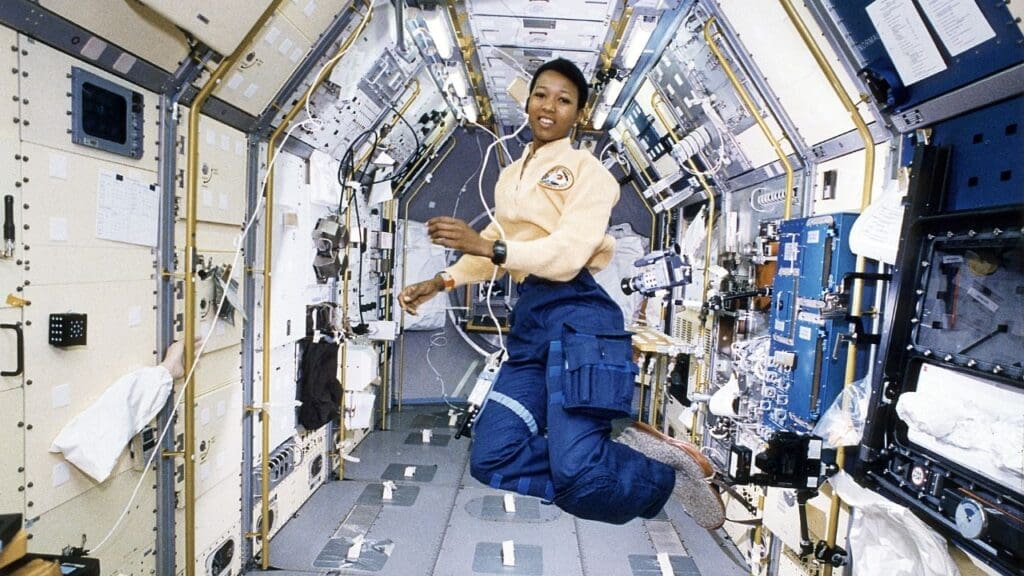

A Look at Innovative Careers in the Space Industry
The space industry has evolved into a diverse and dynamic field with many innovative career opportunities. Technological advancements and increased private sector involvement have expanded the scope of roles available, ranging from satellite development to space tourism. The demand for skilled professionals in this burgeoning industry is higher than ever. As the final frontier continues to beckon, careers in the space industry offer the chance to contribute to groundbreaking advancements. This blog explores innovative careers that are shaping the future of space exploration and commercialization.
1. Satellite Engineering
Satellite engineering is one of the most critical and innovative fields within the space industry. Engineers in this domain are responsible for designing, building, and maintaining satellites used for communication, weather monitoring, navigation, and scientific research. The advancements in miniaturization and electronics have led to the development of small satellites, or CubeSats, which are more cost-effective and easier to deploy. These small satellites are revolutionizing space missions by providing affordable access to space for a variety of applications.
The role of a satellite engineer involves working on various subsystems such as power, thermal control, and telemetry. Engineers must ensure that satellites can withstand the harsh conditions of space and operate reliably over their intended lifespan. With the increasing deployment of satellite constellations for global internet coverage, the demand for skilled satellite engineers is on the rise.
2. Space Tourism Development
Space tourism is an emerging sector that promises to make space travel accessible to non-professional astronauts. Companies like Virgin Galactic, Blue Origin, and SpaceX are pioneering commercial spaceflights, offering suborbital and orbital experiences to paying customers. Professionals in this field work on a variety of tasks, including spacecraft design, safety protocols, and customer training programs. The goal is to ensure a safe and enjoyable experience for tourists venturing into space.
Developing a space tourism program involves collaboration between engineers, medical experts, and hospitality professionals. Engineers design spacecraft that can safely transport tourists. While medical experts develop health and safety guidelines to prepare passengers for the rigors of space travel. Hospitality professionals create training and experience packages that ensure customers are well-prepared and can fully enjoy their journey.
3. Space Law and Policy
As the space industry grows, the need for robust legal and regulatory frameworks becomes increasingly important. Space law and policy professionals work on developing and implementing regulations. Those govern space activities, ensuring they are conducted safely, ethically, and sustainably. This includes addressing issues such as space debris, property rights, and the peaceful use of outer space. Lawyers and policy experts in this field often collaborate with international organizations, governments, and private companies to shape the future of space exploration. A career in space law and policy requires a deep understanding of international law, treaties, and agreements.
Professionals must navigate complex legal landscapes to address emerging challenges, such as the commercial mining of asteroids and lunar resources. Additionally, they play a crucial role in negotiating international collaborations and resolving disputes.
4. Investments in Space Ventures
The space industry is attracting significant investment from both the public and private sectors. Investment professionals specializing in space ventures identify and fund innovative startups and projects that have the potential to revolutionize the industry. This includes companies working on satellite technology, space mining, space tourism, and other cutting-edge applications. These investors play a crucial role in providing the necessary capital and strategic guidance to bring ambitious space projects to fruition. A career in space investments involves assessing the technical feasibility, market potential, and financial viability of space-related ventures.
Investment professionals need to stay abreast of the latest technological advancements and industry trends by regularly reviewing space industry investment quarterly reports . They also work closely with entrepreneurs and engineers to understand the unique challenges and opportunities in the space sector. By funding and supporting innovative space companies, investment professionals help drive the growth and development of the space industry.
5. Astrobiology
Astrobiology is a fascinating and innovative field that explores the possibility of life beyond Earth. Astrobiologists study extreme environments on Earth to understand the potential for life in conditions similar to other planets and moons. This research involves a multidisciplinary approach, combining biology, chemistry, geology, and planetary science. Astrobiologists conduct experiments, analyze data from space missions, and develop models to predict where life might exist in the universe. The discovery of extremophiles—organisms that thrive in extreme conditions—has expanded our understanding of the potential for life in harsh environments.
Astrobiologists use this knowledge to guide the search for life on Mars, Europa, Enceladus, and other celestial bodies. The development of advanced instruments and space missions dedicated to astrobiology, such as the Mars Perseverance rover, highlights the growing importance of this field. A career in astrobiology offers the chance to contribute to one of humanity’s most profound questions: Are we alone in the universe?

6. Aerospace Engineering
Aerospace engineering is a dynamic field focused on the design, development, testing, and production of aircraft and spacecraft. It encompasses aeronautical engineering, dealing with aircraft within Earth’s atmosphere, and astronautical engineering, which focuses on space-bound vehicles. Aerospace engineers are responsible for conceptualizing and designing aerospace vehicles and systems. They also conduct simulations and tests for functionality and safety and collaborate with multidisciplinary teams to integrate subsystems.
The field involves significant research and development to enhance the efficiency, reliability, and safety of aerospace vehicles. This includes the development of new materials, optimization of propulsion systems, and innovations in autonomous flight and reusable launch systems. Career opportunities are diverse, spanning government agencies like NASA and ESA, and private sector giants such as Boeing, SpaceX, and Airbus. The rise of new space ventures and commercialization trends further expands job prospects, making aerospace engineering an exciting career choice for those passionate about advancing technology and exploring the frontiers of air and space travel.
The space industry offers a diverse array of innovative career opportunities that extend far beyond traditional roles. From satellite engineering and space tourism development to space law and policy, investments, and astrobiology, these careers are at the forefront of technological and scientific advancement. The demand for skilled professionals in these areas will only increase as the industry continues to evolve. Pursuing a career in the space industry provides the excitement of working on groundbreaking projects and the opportunity to contribute to humanity’s exploration and understanding of the cosmos. Whether you are driven by a passion for science, technology, or business, the space industry holds a wealth of possibilities for those ready to reach for the stars.
We’re a team of writers dedicated to providing insights and tips for navigating the professional world. With a collective wealth of experience across various industries and roles, our team understands the challenges and opportunities that come with seeking meaningful work and advancing your career. We help job seekers to better their careers by offering career advice & free resources. Download free Word resume templates and resume templates for Google Docs .
Write a resume that lands more interviews!
Create a job-winning resume in 15 minutes with the help of a resume builder. Get a walkthrough of each section and fill out your resume within minutes.
Others also read

How to Research a Company for a Job Interview

Mechanical Engineer Resume Example That Helps You Standout

4 Tips for Creating an Elevator Pitch for Job Seekers + Worksheet

How to Manage Health Insurance Continuity During a Job Change

10 Benefits of Working for a Temp Agency

How To Write a Remote Job Resume (Samples + Templates)

How to Write the Perfect Thank You Email After Job Interview

How to Create a Resume for the Modern Job Market
You might also like these free templates.
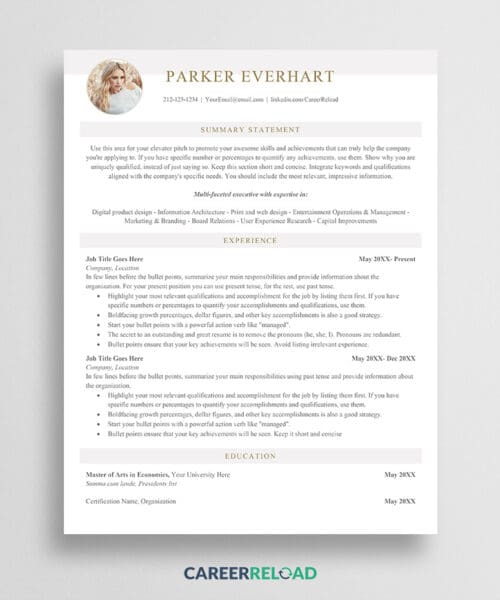
Simple Resume Template with Photo – Parker

ATS Resume Template for Word – Jennifer

Download Free Word Resume Template – Riley

Free Resume Layout for Microsoft Word

Goal Planner

Cover Letter Template with Monogram

Professional Cover Letter Template

Free Modern Resume Template for Word
Free Job Application Tracker for Excel

Resume Checklist

Free Resume Template Download for Word – Farrah

Free Google Docs Resume Template Download – Will
- Resume Writing Guide
- Resume Tips
- Cover Letter Tips
- Job Interview Tips
- Professional Development
- Workplace Tips
- Leadership & Management
- Small Business & Side Hustle
- Word Resume Templates
- Google Docs Resume Templates
- Pages Resume Templates
- PowerPoint Resume Templates
- Photoshop Resume Templates
- Word Cover Letters
- Google Docs Cover Letter Templates
- Pages Cover Letter Templates
- PowerPoint Cover Letter Templates
- Photoshop Cover Letters
- Resume Examples
- Cover Letter Examples
- Resignation Letter Examples
- Recommendation Letter Examples
- Worksheets & Checklists
- Business Card Templates
- Personality Test
Username or email address *
Password *
Remember me Log in
Lost your password?
Exploring the Impact of Space Exploration on Job Creation and Innovation
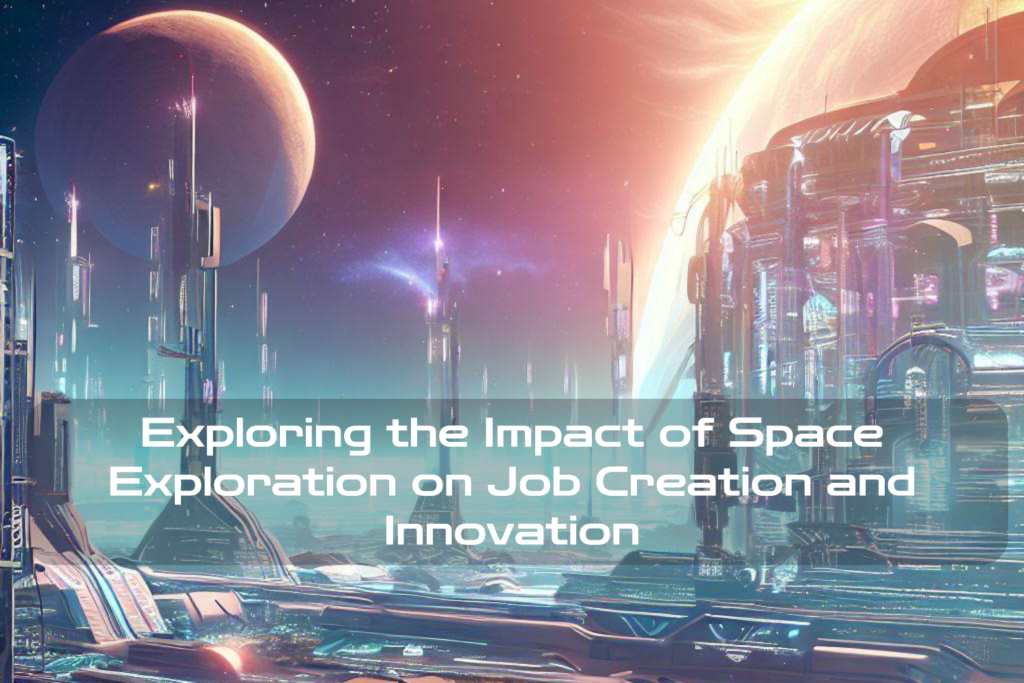
The Final Frontier: How Space Exploration Boosts the Economy
From landing on the moon to sending rovers to Mars, space exploration has captured our imaginations for generations. But did you know that it also has a significant impact on our economy? In this article, we’ll explore how space exploration has led to job creation and innovation, resulting in economic growth.
The Impact of Space Exploration on the Economy
The space industry is a major player in the global economy. In 2019, it was estimated to be worth $423.8 billion and is projected to exceed $1 trillion by 2040. This industry encompasses a wide range of activities, from satellite launches and telecommunications to scientific research and interplanetary exploration.
One of the most significant impacts of space exploration on the economy is job creation . According to a report by the Space Foundation , the global space workforce totalled 200,000 in 2022, with an estimated 5-10% annual growth rate.
The jobs created by the space industry span multiple disciplines such as engineering, manufacturing, data analysis and more. Furthermore, these jobs are often high-paying and require advanced degrees or specialized training.
The Link Between Space Exploration and Economic Growth
Space exploration serves as an engine for economic growth through job creation and innovation. As we will discuss in this article, investing in space technology drives progress not only within its own industry but also across other sectors such as healthcare or transportation.
In fact, some of today’s most commonly used technologies were developed for use in space before being adapted for use on Earth; GPS systems are just one example.
Job Creation

The Space Industry’s Impact on Job Creation
Space exploration has led to a significant increase in job creation across numerous industries. According to the U.S. Bureau of Labor Statistics, the space industry employed over 211,000 workers in 2019.
This number is expected to grow significantly as private companies like SpaceX and Blue Origin continue to ramp up their operations. In addition to direct jobs within the space industry, space exploration has also created job opportunities in related industries such as technology and manufacturing.
For example, NASA’s plans for a manned mission to Mars have spurred innovation in areas like life support systems, robotics, and materials science. These innovations have practical applications beyond just space travel and can be utilized in countless other industries.
Companies Involved in Space Exploration and Their Job Creation Impact
Many companies are involved in space exploration, each with its own unique impact on job creation. SpaceX is perhaps the most well-known private company involved in space exploration today.
Founded by Elon Musk, SpaceX employs over 7,000 people who work on everything from rocket design to spacecraft manufacturing.
Boeing is another major player in the field of aerospace and defense technology with over 165 years of experience.
The company has played a significant role in NASA’s missions since the 1960s and employs over 143,000 people worldwide.
Virgin Galactic is another exciting company that has recently entered the field of commercial space travel.
The company aims to make suborbital flights available for paying customers while also advancing supersonic travel research. While still a relatively small company with just under 1,000 employees at present, Virgin Galactic’s mission holds enormous potential for job growth both within its own workforce as well as with partnering organizations developing new technologies and infrastructure necessary for future commercial travel ventures.
Creating Jobs Beyond The Space Industry
Not only has space exploration created jobs within the industry, it has also led to job creation in related fields such as technology, manufacturing, and environmental science.
For example, NASA’s Artemis program to land the first woman and next man on the Moon by 2024 is expected to create numerous opportunities for private companies to partner in developing new technologies necessary for deep space exploration.
The development of these technologies can then be utilized in a variety of industries beyond just those working in space exploration.
Furthermore, with plans for lunar settlements and research stations underway, there will be a need for workers skilled in architecture, construction, electrical engineering, and other trades both on Earth and potentially on the moon itself – leading to the creation of new jobs not only in direct support of space travel but also through businesses that supply the products or services needed by these workers.
Overall, space exploration has created job opportunities at all levels – from highly trained scientists and engineers down to labourers working on assembly lines. These positions have spurred economic growth worldwide, even as new areas of research and development continue to open up new avenues for innovation.
Innovation: Driving Technological Advancements

Space exploration has always been a catalyst for technological advancement.
In order to explore the unknown, scientists and engineers must develop new tools and systems that can withstand the harsh conditions of space. As a result, the space industry has been responsible for some of the most significant technological advancements in human history.
One example of this is GPS (Global Positioning System), which was initially developed by the United States Department of Defense for military purposes. However, it was later made available for civilian use and has become an essential tool for navigation across the globe.
GPS technology has enabled us to navigate with pinpoint accuracy and has revolutionized industries such as transportation, logistics, and agriculture. Another example of how space innovation drives progress in other industries is through materials science.
Spacecraft must be designed to withstand extreme temperature changes, radiation exposure, and other harsh conditions found in space. As a result, materials used on spacecraft have led to advancements in everything from medical implants to sports equipment.
Practical Applications Developed from Space Technology

The list of spin-off technologies resulting from space exploration is extensive. NASA’s Technology Transfer Program alone has resulted in over 1,800 patented technologies that have been used to improve life on Earth.
One notable development is water filtration technology. NASA’s research into recycling water on spacecraft led to the development of advanced water filtration systems that are now commonly used around the world.
Other developments include solar energy technology, fire-resistant materials for buildings and vehicles, and even scratch-resistant coatings for eyeglasses.
In addition to directly benefiting consumers through these practical applications, innovations developed through space exploration have also driven progress across many industries, including healthcare, telecommunications, and energy production.
The Ripple Effect: Innovation Inspires Further Innovation

The innovation resulting from space exploration not only benefits individual industries but also inspires further innovation across multiple fields. The development of new materials and technologies frequently leads to entirely new industries and applications that were previously unimaginable.
For example, NASA’s research into 3D printing to create spacecraft components led to the development of 3D printing technology for medical applications such as prosthetics.
Similarly, advances in robotics and artificial intelligence have been driven by the need for autonomous systems on spacecraft.
Furthermore, the collaboration required between governments, private companies, and academic institutions in order to advance space exploration has led to cross-industry partnerships that drive innovation across multiple fields. The transfer of knowledge and expertise between these organizations has resulted in remarkable advancements that benefit society as a whole.
Economic Impact

Exploring the Economic Benefits of Space Exploration
The economic impact of space exploration is a topic that has been debated for many years.
Critics argue that investing in space exploration is too expensive and diverts resources from more pressing needs on Earth. However, supporters of the space industry point out that the benefits extend far beyond scientific discovery and exploration.
In fact, the economic benefits resulting from job creation and innovation may be among the most significant impacts. One major economic benefit of space exploration is job creation.
The industry employs scientists, engineers, technicians, and other highly skilled professionals who earn high salaries and contribute to local economies. For example, NASA’s Kennedy Space Center in Florida employs over 8,000 people and generates millions of dollars in revenue for surrounding businesses.
Additionally, private companies like SpaceX have created thousands of jobs through partnerships with NASA and other organizations. Another economic benefit is innovation resulting from space exploration research.
Government Investment Drives Economic Growth
Although some argue that government investment in space exploration diverts resources from other needs on Earth, others point out that government funding can actually drive economic growth. Government investment provides the critical funding necessary for research and development efforts of new technologies, which could lead to breakthroughs across multiple industries.
Additionally, government investment can stimulate private sector involvement as well as drive collaborations between academia & industry leaders, which leads to more innovation but also creates new opportunities within emerging markets.
Regions That Have Experienced Economic Growth Due To Their Involvement With The Space Industry
Regions around the world have experienced significant economic growth due to their involvement with the space industry.
One example is Houston, Texas, home to NASA’s Johnson Space Center.
The center employs thousands of scientists and engineers and generates billions of dollars in economic activity for the region. Additionally, companies like Boeing and Lockheed Martin partner with NASA in Houston, creating even more job opportunities.
Another example is the Space Coast region of Florida, which has seen significant economic growth due to its proximity to Kennedy Space Center. This region has become a hub for aerospace manufacturing, attracting companies like Blue Origin and OneWeb Satellites .
Overall, while some may argue that investment in space exploration is frivolous or unnecessary, there is no denying the significant economic benefits this industry provides. It not only creates jobs but also stimulates innovation, which drives economic growth across multiple industries.
Challenges Facing the Space Industry

Space exploration is not without its challenges, and the industry faces several obstacles that must be addressed to continue its growth. One of the biggest challenges is funding. Space missions are incredibly expensive, and securing enough funding for them can be difficult.
This has led to many space programs being cancelled or delayed due to a lack of funding. Another challenge facing the space industry is safety concerns.
Space travel is a risky endeavor, and despite advancements in technology, there are still dangers that cannot be completely eliminated. Accidents like the 1986 Challenger disaster and the 2003 Columbia disaster serve as reminders of these risks.
These accidents not only cause loss of life but also result in financial setbacks for space programs. Regulation is also a challenge facing the space industry.
There are few laws governing space exploration, which can lead to issues with ownership and liability. It’s important for governments to establish clear regulations that protect both companies and individuals involved in space exploration.
Potential Future Opportunities for Job Creation
Despite these challenges, there are still many opportunities for job creation within the space industry. One potential area of growth is satellite technology.
Satellites play an essential role in communication, navigation, weather forecasting, and more.
As demand for satellite services increases, so will job opportunities related to their development, launch, operation, and maintenance. Another area of opportunity involves asteroid mining, – extracting resources from asteroids such as water or minerals like platinum-group metals, which could help us reduce our dependence on Earth’s finite resources such as oil reserves or coal deposits.
Commercial spaceflight presents another exciting opportunity for job creation within the industry – this includes both tourism (space tourism) as well as transporting cargo into orbit (space logistics). With private companies like SpaceX pushing boundaries in this field we may see some amazing technological advancements come out soon.
The Future of Innovation Within The Space Industry
Innovation will continue to drive growth within the space industry, and we can expect to see many exciting new advancements in the coming years.
One area of focus is reusable rockets, which could significantly reduce the cost of space travel by allowing rockets to be used multiple times.
Another area of innovation is 3D printing . This technology is already being used on the International Space Station to print tools and parts as needed.
As this technology advances, we may see entire space structures being printed in orbit.
AI and robotics are also poised to play a significant role in future space exploration.
Robots can be sent to explore hostile environments where it may be too dangerous for humans, such as Mars or Jupiter’s moons. AI could also help automate tasks like navigation or data analysis.
Overall, while there are challenges facing the space industry, there are also many opportunities for job creation and innovation within it. As advancements continue to be made, we can expect exciting new breakthroughs in space exploration that will benefit us all here on Earth.
Final Thoughts

We have explored the significant job creation and innovation resulting from space exploration, and its resulting economic growth.
Job creation in space-related industries such as aerospace technology, satellite manufacturing, and launch services has led to employment opportunities for thousands of people worldwide.
Furthermore, innovation in the space industry has led to breakthroughs in technology that have practical applications beyond space exploration. The economic impact of these developments cannot be understated.
Investment in the space industry has resulted in substantial economic growth for many regions worldwide. The creation of high-paying jobs has benefited local economies by generating revenue through increased consumer spending and tax revenues.
While challenges remain for the space industry such as funding constraints and safety concerns, future opportunities for job creation and innovation within the industry seem boundless. With private companies taking a more active role in space exploration alongside government agencies, there is still much that can be accomplished to benefit humanity.
It is clear that space exploration has had a significant positive impact on job creation and innovation, which has led to sustained economic growth over time. This trend shows no signs of slowing down anytime soon, with new technological advancements being made regularly that further expand our understanding of our universe while also providing benefits here on Earth.

C M, a seasoned editor, journalist, and consultant, is deeply fascinated by the convergence of technology, space, and the future of humanity. With a particular interest in transhumanity, futurology, and the philosophical and ethical dimensions of these domains, C M serves as the lead contributor to SpaceSpotlight and TranscendSphere . When not penning insightful articles on these rapidly evolving fields, C M indulges in their love for podcasts and books, proudly embracing their status as a ‘Happy Nerd Extraordinaire!’
Fascinating! (Further Reading)
Is there life beyond earth.
Investigating the impact of astrobiology on our understanding of the origins of life on Earth. Explore extraterrestrial life, extremophiles, & philosophical implications.
The Philosophy of Space Exploration & Evolution of Human Consciousness in a New Epoch for Humanity

Brief Intro overview of the connection between space exploration and human consciousness. Discover how it can shape our future, and prepare for a new epoch in the stars
The Economic Impact of Space Tourism on the Global Economy

An initial overview of the potential economic impact of space tourism on the global economy. Explore benefits, challenges, and future developments in this detailed article.
Exploring the Cosmos: How Space Education Takes Students to New Heights

Space education can improve academic performance, offer career opportunities, develop critical thinking skills and inspire students. Read more now.
- Space Foundation
- Space Symposium
- Discover Space
- The Space Report
- Space Foundation News
- Press Releases
- Space4u Podcast
- Space Awareness
- Symposium Event Information
- Space Commerce
- State of Space
- Government & Policy
- Get Involved
- Scholarships
Space jobs in the United States
Explore 4599 + jobs in the United States from leading space companies, find great space industry opportunities and boost your space career.
or search thousands of opportunities from our other categories
Featured companies hiring on Space Crew
View 30 jobs
View 19 jobs
View 261 jobs
View 99 jobs
Search space jobs
More Filters
4599 Open positions
📍 Los Angeles AFB, CA, United States
💰 $ 151 - 226 k
🕒 Full Time
📌 an hour ago
📍 McGregor, TX, United States
💰 $ 110 - 145 k
📍 Los Angeles, CA - Huntsville, AL - Denver, CO - Seattle, WA, United States
💰 $ 82 - 126 k
📍 El Segundo, California, United States
💰 $ 145 - 175 k
📍 United States-Maryland-Linthicum, United States
💰 $ 83 - 125 k
💰 $ 150 - 175 k
📍 Long Beach, California, United States
💰 $ 53 - 81 k
🔔 Set up an email alert for this search
Get a daily, weekly or monthly email containing all the new jobs matching this search.
⚙️ Automate your job search
🎯 Never miss a great opportunity
📍 Johnson Space Center, TX, United States
📍 United States-Utah-Roy, United States
💰 $ 131 - 197 k
📍 USA - Hazelwood, MO - USA - Berkeley, MO, United States
💰 $ 114 - 154 k
📍 Cape Canaveral, FL, United States
💰 $ 75 - 95 k
📍 Space Coast, FL, United States
📍 Bertram TX, US
📍 Full Remote
💰 $ 103 - 192 k
📍 Broomfield, Colorado, United States
💰 $ 140 - 160 k
💰 $ 30 - 55 k
📍 San Jose, CA, United States
💰 $ 113 - 189 k
📍 Littleton, Colorado, United States
💰 $ 124 - 237 k
📍 Bastrop, TX, United States
💰 $ 95 - 130 k
💰 $ 155 - 190 k
📍 San Fransisco, California, United States
💰 $ 65 - 80 k
📍 Chantilly, VA - Huntsville, AL - Colorado Springs, CO - El Segundo, CA, United States
💰 $ 123 - 202 k
📍 Tampa, FL, United States
💰 $ 64 - 106 k
📍 Houston, Texas, United States
💰 $ 166 - 192 k
📍 San Diego, CA, US
💰 $ 127 - 177 k
📍 Austin, Texas, United States
📍 Hawthorne, CA, United States
💰 $ 95 - 115 k
📍 Centennial, Co, United States
💰 $ 98 - 154 k
📍 USA - Everett, WA, United States
💰 $ 116 - 125 k
Have space fever? Here are five jobs that will take you closer to the stars
Going to space might not be too far off for some, thanks to a renewed commitment by NASA to return astronauts to the moon by 2024 and private companies like SpaceX launching rockets seemingly every week .
But astronauts soon won't be the only ones going to space. Space tourism is growing into a major market. And with the likes of Virgin Galactic and Blue Origin competing in a space race, the stars might not be so out of reach.
Here's a list of jobs that may sound like science fiction now but aren't far off from becoming mainstream.
A few good aliens
You won't get to mediate legal disputes in space, but the job of space lawyer is still open to all space buffs or those interested in advising the government or private companies.
There are only four universities that teach space law in the world, but two of them are in the U.S., at the University of Mississippi School of Law and University of Nebraska-Lincoln's Doctor of Juridical Science.
Michelle Hanlon, professor of aviation and space law at the University of Mississippi, told USA TODAY that there are two types of space lawyers: the traditional academic, who can be a professor or international representative, and the growing adviser to companies like Space X.
"This is a really exciting time to be in space law," she said. "People think of space as for billionaires – they think of it for Branson and Bezos and Musk – but it's not. There are so many startups that need our help in terms of every aspect of law, not just space law."
In addition to teaching international and domestic administrative law, Hanlon is the co-founder of law firm For All Moonkind, which she says focuses on preserving humans' heritage in space.
"When you think about preserving our history, we have about 55 space lawyers working with us to talk about how we're going to protect those sites," she said.
"Legally, we need to figure out how to get them recognized in the same way we recognize the pyramids or Stonehenge. We don't have a mechanism to do that in space yet."
Space archaeologist: A new Indiana Jones
There are other jobs that are actively safeguarding human space heritage: space historians, curators and archaeologist. Space historians have long had a place in preserving artifacts from the Apollo and other space missions for the public.
Smithsonian National Air and Space museum curator and space historian Cathleen Lewis has been working on curating the Smithsonian's upcoming exhibition featuring Neil Armstrong's spacesuit.
“This spacesuit is the one really human artifact from the Apollo program that people can identify with,” Lewis told Smithsonian Magazine.
“That image of Neil Armstrong stepping on the moon is something that has endured for generations; even people who don't have a personal memory recognize it as significant.”
Also working on preserving the memory of our space adventures are lunar archaeologists.
There have been six manned landings, two manned orbital missions, over a dozen robotic landings and more than a dozen more crash sites to the moon, which offer a look at humankind then and now.
There is a demand to send archaeologists and anthropologists up to the moon to piece together and preserve human history in space.
“These sites are time capsules," Beth O'Leary, an anthropologist at New Mexico State University in Las Cruces, told Smithsonian Magazine in December 2013 .
The sites host valuable artifacts for archaeologists and anthropologists who want to study humanity’s growing space heritage, she added.
However, in order to become Space Indiana Jones, as with many jobs on this list, you have to go to school first and get at least a bachelor's degree. However, at least in the Smithsonian's case, there are volunteer opportunities.
Life in outer space: NASA finds health changes between astronaut twins Scott and Mark Kelly
Launch: 16 stunning photos from the early-morning launch of SpaceX Falcon Heavy rocket
Sally Ride, or Han Solo?
Dreams of being Sally Ride controlling the Challenger or a real life Han Solo at the controls of the Millennium Falcon might soon be a reality.
Space flight is already developing beyond NASA missions; however, companies like SpaceX and Boeing look specifically for astronauts.
But with commercial space tourism slowly edging into common consciousness, there will be a significant increase in the need for shuttle-steering space pilots.
Virgin Galactic, for example, is such a company, aiming to transform the current cost, safety and environmental impact of space-launch. The company has had 2,500 people ask to sign up for flights , which are set to begin within a year, venture capitalist Chamath Palihapitiya said earlier this month.
"We know that millions of people are deeply inspired by human spaceflight, would love to become more involved and, ultimately experience space for themselves," said Virgin company CEO Richard Branson in a July 9 statement when the company announced it was going public.
"By taking Virgin Galactic public, at this advanced point in its development, we can open space to more investors and in doing so, open space to thousands of new astronauts."
Dr. Spaceman
Why do your forehead and eyes change shape after a year in space ? What do days, weeks, months or even years away from Earth in space mean for a person psychologically? How long would you actually survive if you were stranded on Mars?
A number of universities, including King's College London , seek to answer these questions through space physiology and health programs through "training for biomedical scientists and doctors with an interest in the biomedical issues associated with space exploration."
These master's programs are becoming more applicable by the day. The Mars Desert Research Station (MDRS) runs simulations of space-like events for scientists in "Mars" – or an environment like it, Utah – and is geared toward researching the human challenges to a space mission.
Space tourism: Richard Branson’s Virgin Galactic will take tourists to space. Now it's set to go publi c
Space in 5: NASA names new moon landing mission 'Artemis'
There's gold in them there asteroids
There are approximately 9,000 known asteroids traveling in orbit close to the Earth, and 1,000-odd new ones are discovered each year, according to NASA.
A company called Planetary Resources is looking to harness these space rocks, which its website says can "make it possible to fuel and sustain life in space, creating a new paradigm of travel and human presence in space."
According to NASA, the minerals that lie in the belt of asteroids between Mars and Jupiter hold wealth equal to a staggering $100 billion for every person on Earth.
But there is more to space mining than a gold rush for the sci-fi age. Taking mining off Earth could help relieve humanity’s destruction of our planet’s environment.
"There are an estimated two trillion (tons) of water available on near-Earth asteroids," says the company on their website. "This water can be used to sustain human life and as propellant for spacecraft."
The Colorado School of Mines offers a variety of retraining courses for adults to get certified in this new field.
Cloudy with a chance of ... solar flares
Space meteorology is already somewhat a job, though not in the way you would expect.
According to the American Meteorological Society, space weather occurs because emissions from the sun influence the space environment around Earth, as well as other planets.
"Accurate space weather prediction could save society hundreds of millions of dollars a year," said AMS in a 2008 statement . "The need for accurate forecasting only increases. Forecasters continually monitor the space environment using both space-and ground-based assets and issue alerts and warnings of a likely impact on Earth."
If your chosen field is not on this list, don't give up on your space dreams just yet.
Plenty of fields are opening up in space by the day, and even if your ideal career hasn't been invented yet, NASA aims to establish a permanent lunar base by 2024 , and chances are, new positions will open up soon.
Follow Elinor Aspegren on Twitter: @elinoraspegren.
- Stand Up for Free Enterprise
The Economic Potential of Space Travel for Businesses
The growth in space exploration and the private aerospace business opens up a host of economic possibilities, from new markets for businesses to job opportunities for people.
September 15, 2021
Key takeaways
- The commercialization of space travel creates a host of new growth opportunities for businesses.
- The global space industry could generate revenue of $1 trillion or more by 2040.
- The growth in space travel is leading to calls from private and public sector leaders to create regulations around etiquette and future settlement in space.
Private sector business leaders have transformed what was once merely a dream of travel among the stars into a multibillion dollar industry--forming private aerospace companies, launching rockets and satellites, and even creating opportunities for space travel.
Coupled with the decreasing cost of access to low-Earth orbit, this growth in space commerce is enabling new opportunities for business innovation, from manufacturing, to technological advancements, to potential new markets. It is also creating new job opportunities and strengthening our commercial ties with international partners both public and private. There are new opportunities for commercial space travel and private aerospace too.
Below is a guide to what businesses need to know about the current state of space exploration and business, including a primer on the Artemis program, the impact of space travel on the economy, and the regulatory landscape around the private aerospace industry.
The Artemis program
Built on the Apollo program that put the first man on the moon in 1969, the National Aeronautics and Space Administration ( NASA ) is making strides to send the first woman and first person of color, among others, to the lunar surface with the Artemis program .
Among the ambitious goals of this international collaboration is to safely land on the moon’s south pole, an area that has been completely unexplored by humans. Once there, the team will use technological innovations and specialized spacesuits to explore the moon more thoroughly than the previous landing. Things astronauts will search for include signs of water and instances where humans could live or work on the moon. According to NASA , industry experts, astronauts, and scientists see the moon as a test site, using the findings and techniques to inform a potential future journey to Mars.
The team of scientists and astronauts behind the Artemis program are partnering with commercial businesses, government agencies, and other international organizations for the mission. Businesses and contractors will be tasked with developing critical technologies to make the moon landing safe, informational, and beneficial to all parties involved. This need for technology will create additional jobs and provide businesses with growth opportunities .
Space exploration’s impact on the global economy
As humans venture to the moon and beyond with the Artemis program, businesses will have more revenue opportunities. It is estimated that the global space industry could generate revenue of $1 trillion or more by 2040. It also has the ability to bring nations together through the creation of new shared markets .
Already, business leaders and investors have created new private aerospace companies, paving the way for the commercialization of space exploration. Many of these entrepreneurs’ intentions are to secure spaceflight for not only astronauts but also ordinary people to visit (and possibly live) in space. If successful, such space travel will open up opportunities for businesses to provide future space tourists a variety of space-related goods and services.
Relatedly, another area of economic growth is in the space-for-Earth market, which centers on goods or services that are created in space for human use on Earth. These projects include furthering the internet, satellite, observatory, and telecommunication capabilities on Earth from the unique perspective of space exploration. Space-for-Earth is seen as a profitable and growing new market that can contribute to the growth of businesses.
How smart regulation can support innovation
The volume of countries and businesses with space programs and aeronautical capabilities has led to a call from industry experts to create regulations for space travel . This includes proper space etiquette and outlining expectations for those seeking future settlement in space.
The United Nations set initial space regulation standards in 1967 with the signing of the “ Outer Space Treaty ,” more formally known as the Treaty on Principles Governing the Activities of States in the Exploration and Use of Outer Space including the Moon and Other Celestial Bodies. The treaty outlines that each nation is responsible for its own citizens who venture into space. The United States, for example, is responsible for not only the humans it sends into space but also the satellites. Estimates from the Satellite Industry Association predict as many as 110,000 new satellites will be sent into orbit by 2030.
The business community is partnering closely with the government agencies tasked with establishing regulations that set the “rules of the road” for these new ventures in space. Space Policy Directives 2 and 3, for example, institute standards for Space Situational Awareness and Space Traffic Management. They also draw on NOAA’s tools and resources to create a new open architecture data repository that allows SSA and STM data to be shared internationally, ensuring that companies doing business in space can avoid costly and dangerous collisions.
The Artemis Accords, signed in 2020 by the U.S. and international partners, outlines another important framework for guiding future space exploration. Using the Outer Space Treaty, the Registration Convention, and the Agreement On The Rescue of Astronauts, industry experts outlined a multilateral partnership based on shared principles and values. These agreements provide specific guidelines on emergency assistance, registration of space objects, protecting space resources, and interoperability.
The monumental task of regulating entities venturing into space travel and exploration will continue to necessitate both the private and public sectors working together. The U.S. Chamber is front-and-center in this effort, actively working with government on behalf of business to shape and inform the regulatory process in a way that ensures businesses will thrive and remain competitive in this emerging sector. Through this advocacy and through additional public-private partnerships, we ensure that the future growth of the space industry for economies around the world remains truly limitless.
Recommended
- Space Global Aerospace Summit: Shaping the Future of Aviation and Space The annual Global Aerospace Summit brings together leaders from across the aviation and space industries. This year’s event takes place September 10-11. By Sean Ludwig
- Space Exploring Economic Opportunity in Space By John Neal
- Space How the Space Industry Is Taking Off in 2023 By Sean Ludwig
- Space Global Aerospace Summit 2023 Took Aviation and Space to New Heights
- Space Day 2 of the Global Aerospace Summit: Focus on Space
View this online
Home What are the Best Jobs in the Space Industry?
What are the Best Jobs in the Space Industry?
- Space Impulse
- July 5, 2023

Table of Contents
by Julia Seibert
Working in space: a futuristic concept, to say the least. The idea conjures images of spacesuit-clad astronauts floating around in the darkness, hammering away at behemoth megastructures gleaned from the sci-fi imagination. It is safe to assume, however, that such grand visions of space splendor nevertheless reside in the very distant future. Today’s reality is somewhat understated in comparison, with Earthlings still figuring out how best to launch things into space to begin with. Apart from a handful of astronauts circling the planet aboard space stations, jobs in the space industry are still a rarity.
As it turns out, most processes within the space industry are pulled off from the comfort of our home planet. Behind the spectacularism of space missions is the groundwork, and this is where the real magic happens. From designing and building spacecraft, to investigating Earthly goings-on from satellites, to looking backwards in time: it all starts at home.
Jobs in the Space Industry Beside Astronauts
Astronauts are plain cool, and undeniably so. But they are just the tip of the iceberg. After all, someone needs to build their spaceships, interpret the science they collect, make sure they are fed. A dizzying array of non-astronaut jobs in the space industry exist for human spaceflight alone, and that is just a small part of the industry. What this work entails depends on the individual’s affinities.
The technical-minded may find themselves drawn to engineering and technician space sector jobs, wherein spacecraft are designed and built. Others might prefer poring over data collected by satellites, telescopes, and space probes, using them to study processes on Earth and answer the questions of the universe. Those specializing in IT are hot commodities due to spacecraft’s reliance on software. All of these fiddly processes require intricate management and operations teams to make sure all goes smoothly. Then there is the matter of relaying this work to the general public, who might be stumped when faced with the scientific gibberish used within the space industry. Communicators such as videographers, writers, and photographers translate the jargon for the average person, who (especially in the US) often foots the bill for the industry’s exploits.

Below are some of the best jobs in the space industry (though countless more fields exist, ranging from training and monitoring the health of astronauts to space law), and not all of them are rocket science. Flat Earthers need not apply.
Best Space Industry Jobs
1. space industry engineer.
Space industry engineers are the brains behind the technology, designing hardware and computer systems needed for pretty much every space mission. As detailed by the US Bureau of Labor Statistics (BLS), the field can be divided into several categories. Aerospace engineers, as their name suggests, design and test air- and spacecraft, which can include human-grade rockets or a probe headed for Jupiter. However, this job in the space industry is not for the faint of heart. Extensive knowledge of physics and even chemistry is vital, in addition to patience and resilience, since space-related craft like to veer off course and explode.
Mechanical engineers fill a similar but not identical role. While their aerospace siblings focus on flight dynamics and the physics the craft will face, mechanical engineers deal more with the machinery and hardware that keep the system afloat. Adjacently, electrical and electronic engineers handle the electrical systems of craft, including communications and navigation systems. They might work in close contact to computer hardware engineers , who design computer models. While the BLS lists a Bachelor’s Degree in a relevant field as the minimum requirement, NASA often asks for additional qualifications for higher positions.
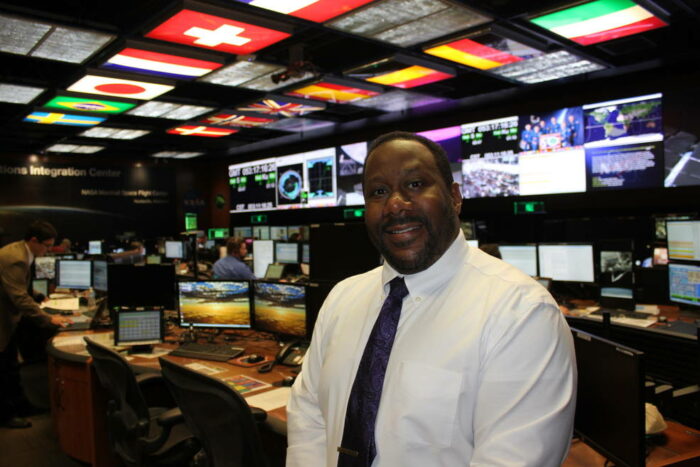
2. Technician in the Space Industry
If engineers are the brains behind space missions, technicians are the backbone. While engineers focus on designing the spacecraft and dealing with arising issues, technicians’ job in the space industry is to aid in spacecraft parts manufacturing and instrument installation, run test facility maintenance, calibrate computer systems, ensure safe testing procedures, and handle the data arising from tests. While engineers frequently work in offices, technicians in the space industry often work in laboratories or manufacturing plants. Despite their extreme importance to everything space, their salary is lower than that of engineers. Education levels are not as rigorous either, with only an associate’s degree necessary for employment, though a high school diploma can sometimes be enough.
3. IT in the Space Sector
How does one communicate with a spacecraft drifting somewhere out there in the solar system? Be it a simple uplink or a signal sent via NASA’s Deep Space Network, there would be no two-way conversations with our robotic creations, or a way of launching them in the first place, were it not for software developers – one of the most important jobs in the space industry. Designing software pertaining to both ground and flight systems is at the heart of most missions. As explained by ESA (European Space Agency), space missions are becoming increasingly autonomous and more reliant on software. These days, unless something unexpected occurs, spacecraft essentially fly themselves. Maneuvering, including avoiding the growing amounts of junk in orbit, is only part of the package.
Troubleshooting and fixing spacecraft already in orbit, where no repair team can reach them, can make the difference between wasting a multimillion-dollar spacecraft or getting a few more years of life out of it. Space software developers’ also enable the order and collection of invaluable data, including television and phone signals, internet, Earth observation, and the light from faraway galaxies. In addition, satellites are often hacked, a trend that continues as satellites gain geopolitical significance. Creating more resilient software and defending against such attacks only adds to the importance of software developers’ jobs in the space industry.
4. Scientist in the Space Industry
Space is brimming with scientific mysteries just waiting to be uncovered. Black holes, the composition of other worlds, astrobiology and the likes; there are simply too many scientist jobs in the space industry to count. Studying space helps answer the most fundamental questions of all, such as whether we are alone in the universe or how life as we know it came to be.
In a less abstract sense, space science jobs have countless palpable benefits for life on Earth. For example, studying asteroids and crashing spacecraft into them might one day mitigate a doomsday scenario, while peering at Earth from orbit enables better monitoring of disaster zones or climate change. Plus, studying other worlds might one day pave the way for further space exploration and even colonization. Scientists studying these phenomena might work at governmental institutions such as ESA and NASA, who have specialized branches dedicated to a variety of fields. They may also work at universities or other institutions dedicated to certain scientific ventures. As the space industry becomes increasingly commercialized, some companies such as space mining startup Astroforge employ trained scientists to aid in their product development.
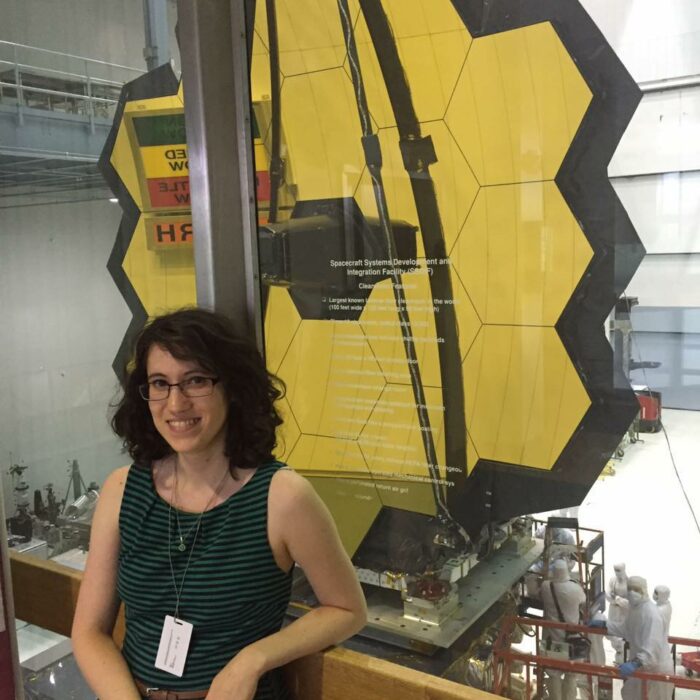
5. Operations and Management in the Space Sector
Amid the chaotic haze of groundbreaking discoveries and fiery rockets, someone needs to take charge. Managers and operations staff in the space sector watch over the happenings of a department or mission to make sure all goes smoothly. Often, they are experts themselves, and their job in the space industry combines with a knack for coordination and dealing with people. A good example of this are the flight controllers working in mission control, where one person – the flight director – is in charge of the entire operation. Under the flight director’s command are a legion of professionals specializing in a certain area, like a flight surgeon or guidance officer, all of whom have yet another gaggle of experts on call in a so-called ‘back room’.
While many companies such as SpaceX employ subject matter specialists in manager positions, this is not always the case. NASA’s top dogs, for example, often come from political and military backgrounds. Several companies employ non-specialists in operations roles, since a technical or scientific background is not always necessary for managerial, administrative, or sales positions.
6. Military in the Space Sector
As space is now a genuine warfighting domain, superpowers such as the US and China have been ramping up their efforts to control it. In 2019, the US established its Space Force, and China’s program is already largely militarized. Citizens of countries with a military interest can find a job in the space sector in this vein. The Space Force , for example, offers positions pertaining to analysis of intelligence, engineering, leadership, and logistics. Though the branch is relatively small compared to the rest of the US’s enormous military structures, its budget and global significance are on the rise.
7. Space Industry Communications
Unraveling the intricacies of the industry and revealing them to the public is another crucial job in the space industry. Overly technical explanations of fascinating and often important processes of space would be met with a blank stare from the average person were it not for communicators dissecting them into more digestible chunks. Astrophotographers deserve much credit here, capturing faraway corners of the cosmos and converting the faint light into images dancing with color and shimmer. The job is more complex than it seems, requiring expertise on astronomy, valuable equipment, and an artistic streak.
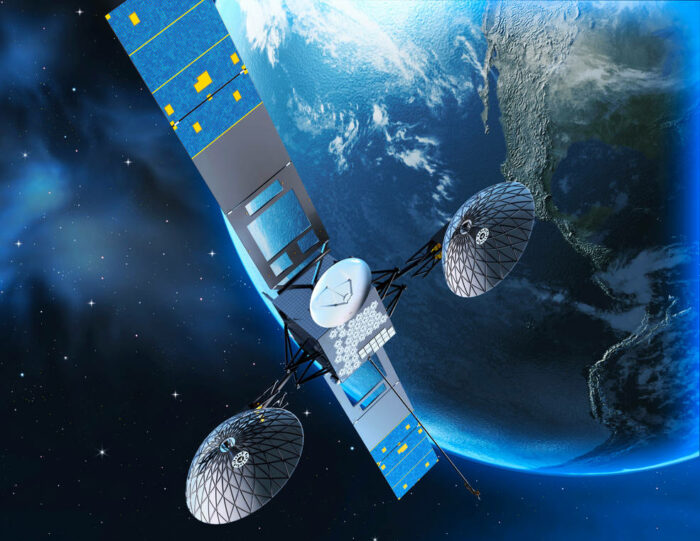
Then there are the videographers, whose specialisms range from succinctly summarizing complex topics in videos to filming rocket launches. YouTubers like Everyday Astronaut, break down the inner workings of rockets to his millions of followers, making the technobabble of rocketry more approachable and spreading awareness of ongoing processes in the space industry. Writers occupy a similar niche, sometimes even appearing in non-space related news publications as a bridge between the public and industry. Still, it is important to differentiate between independent communicators and those employed by companies or agencies as part of their PR teams. Both jobs are important for communication in the space sector, but are vastly different in their purposes.
See also: The 10 Best Space Companies to Work for in 2023 14 Best Space Startups to Watch in 2023 15 Most Exciting NewSpace Companies to Look Out for in 2023
What are the Highest Paying Jobs in the Space Industry
Among the cushiest positions in the industry are the engineering jobs in the space industry, for which the BLS lists salaries as high as US $128,170/year as of 2021. The latter is what a computer hardware engineer would make, with aerospace engineers raking at US $122,270/year, electrical and electronic engineers at US $101,780/year, and mechanical engineers at US $95,300/year. By comparison, an aerospace technician would make US $73,580/year. Science and research job salaries in the space sector vary, with the BLS listing physicists and astronomers with a paycheck of US $147,450/year.
Some NASA research jobs pay substantially less, and a study by Space Skills Alliance focusing on the UK sector saw an extremely low pay for PhD students. NASA supervisory and managerial job positions in the space industry are quite comfortable, sitting in the US $120,000/year to US $160,000/year range. The salaries of communications specialists encompass a great range, with NASA listing such a role as US $57,118 – US $133,236/year. The pay of independent communicators, on the other hand, varies according to their employer and/or social media following. Many YouTube channels, for example, depend on their fanbase for donations and the purchasing of merchandise.
In general, the Space Skills Alliance found that jobs in the space industry upstream pay more than those downstream. In terms of space, that means that jobs taking place earlier in the process, such as designing and building spacecraft, come with higher salaries than those dealing with the services and data arising from them. This is reflected by the higher pay of space industry engineers and managerial roles. Another pattern found by the study is that larger companies pay better than small ones, while governmental job salaries are less varied and more ‘clustered’ together. In the US, governmental actors are the biggest customers of the industry, meaning that companies specializing in such fields have higher chances of success and therefore often come with higher salaries.
How to Get into the Space Industry
How one gets a foot in the door of the industry depends on one’s desired field. All space industry jobs require some expertise, but a certifiable educational background is especially vital to those with engineering or scientific ambitions. This can then be used to apply for space-related jobs at companies, agencies, or PhD programs. Though this is not possible for everyone, NASA also offers internships to high school and college students (mostly US citizens, some opportunities for international students), which might lead to future employment. Alternately, joining the military in the space sector (if one is a citizen of that country) might make it possible to work in space. Even before the Space Force, a large portion of NASA astronauts came from a military background. As for communications, the processes are not as rigid here. Some writers come from space industry backgrounds, but not all. The same goes for videographers and photographers. The bottom line here is an ability to understand industry processes, which does not necessarily require a professional level of expertise, and restate it in a way understandable to the public.
Best Education for J obs in the Space Industry
While there is no set way to enter the space industry, there are a number of institutions that make it easier to learn the ropes. The aforementioned NASA internships are one example. Internships are also offered by other agencies like ESA and commercial companies.
For fields where a certain level of academic achievement is necessary, colleges and universities with more developed space-related programs are helpful, too. Harvard University, for example, has an extensive astronomy department, making it attractive to aspiring astrophysicists. MIT (Massachusetts Institute of Technology) and Caltech (California Institute of Technology), meanwhile, are hubs for space industry engineering. Many companies and institutions list graduation from an Accreditation Board for Engineering and Technology (ABET)-certified program as a requirement.
That being said, while some space schools might have better programs than others, the important factor is networking. Joining societies, attending conferences, and applying to jobs in space even if they seem out of reach might just make the difference.
You may also like: T he 20 Best Movies About Space to Watch In 2023 Top 8 New Space Documentaries [+3 All Time Classics]
What the Future Holds for Careers in Space
While the literally explosive industry of space is notoriously difficult to predict, advancements in technology coupled with geopolitical tensions make a good case for a growing space sector. As such, jobs in space will grow in importance also. Space industry engineers and technicians will certainly remain in demand, with the BLS predicting an average job growth throughout the next decade or so. The Bureau predicts an even higher growth for physicists and astronomers in the space industry.
The high demand for space software engineers is not likely to go away, as it constitutes among the highest talent gaps in the industry as of 2020. The U.S. Space Force’s budget has been shooting up in recent years and the branch, along with the Department of Defense, has been dealing out contracts to private firms like never before. Given space’s importance in modern conflict, this growth is likely to continue, dominating much of the industry.
In general, though, what attracts people to the space industry in the first place can be simply defined as childlike wonder.
“I’ve always wanted to be part of the space industry since I was little,” says Sirisha Bandla, Vice President of Government Affairs and Research Operations at Virgin Galactic (as reported by Rocket Woman).
Eloise Matheson, previously a Telerobotic Engineer at ESA and now a Mechatronics Engineer at CERN (European Organization for Nuclear Research), had a similar experience, according to Rocket Woman.
“The notion of exploring what is beyond our world, of discovering where humanity came from and furthering the boundaries of known knowledge is, I believe, an entrenched human trait that everyone shares. Working in space helps us to achieve this one little bit at a time,” Matheson adds .
Steven Cowart, Manager for Visual Display Systems at NASA, shares this sentiment (as reported by Forbes):
“I feel like a kid in a candy store… we get to do things I would never have imagined had I not been hired here. Things that matter. Things that inspire people. Things that change our perception of our life on Earth and our place in the universe,” he describes .
The space sector, it seems, is defined by a unique motivation for jobs in the space industry, independent of its ups and downs. The simple sensation of working with the universe is what sets it apart. Space is enigmatic, endless, incomprehensibly fascinating. As long as mankind has been capable of imagination, the cosmos has been playing on it. Ideas derived from space, such as timekeeping methods and countless religions, have molded human life for millennia. What is the modern space age if not a mere continuation of this trend?
If you found this article to be informative, you can explore more current space news, exclusives, interviews and podcasts here .
Featured image: Credit: NASA
Share this article:
"> "> You May Also Be Interested In
Scottish space network partners with sustainable alpha to boost investment in space tech, starlab space, aiming to be a maintainer of peace amid earth’s conflicts, eu funds pioneering inflatable heat shield for space re-entry, global space endeavors: emerging and established national space agencies, spacex’s starship rocket successfully completes fourth test flight, splashes down in indian ocean, "> space news ">.
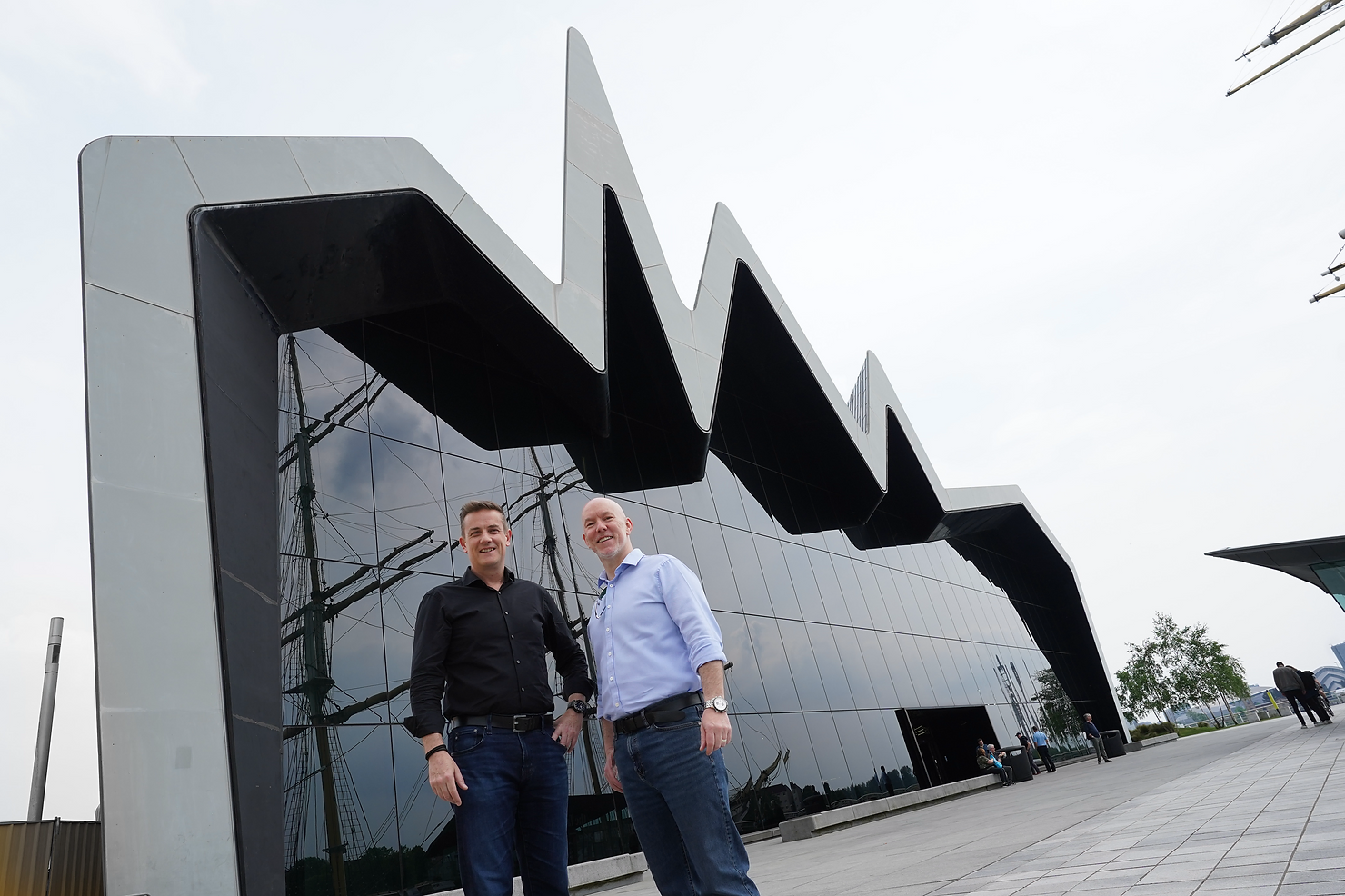
Keep track of everything going on in the Space Technology Market. In one place.
Related articles.

One of our team will be in touch to learn more about your requirements, and provide pricing and access options.
You can unsubscribe anytime. For more details, review our Privacy Policy.
Opt in to receive news and updates.
You have successfully joined our subscriber list.
What are the Most Common Space Industry Jobs?
The space industry is growing rapidly, and so is the amount of job opportunities available. While most people think of astronauts when they think of space, there are many space industry jobs that don’t come to mind as quickly. This blog will cover the most common jobs found in the space industry.
Engineering is a massive element when it comes to space projects. There are a wide variety of engineers that can play a large role in space, so here is a breakdown of the most common types of engineers in the space industry:
- Aerospace Engineers: Aerospace engineers apply the principles of engineering to vehicles designed for flight, such as space shuttles, planes, satellites, and more. These engineers are helpful as they can gauge whether an aircraft can complete a mission.
- General engineers: General engineers utilize their understanding of mathematics and other engineering principles to design machinery, such as engines, and use this knowledge to aid in a variety of projects in space. There are many areas in which general engineers contribute to the space industry.
- Computer Engineers: Computer engineers focus on the development and maintenance of computer board systems, like circuit boards, networks, routers, and processors. Computer engineers are crucial in the space industry, as much technology that we use is completely autonomous and/or relies heavily on computer systems for operation and communication. These individuals might specifically earn a computer science degree.
Engineers typically complete a traditional four-year degree program at a college or university. However, some engineers may choose to also obtain an extra two years of schooling to earn their master’s degree in engineering, so they can work in management-style positions.

Astrophysicists

There are plenty of questions humans have had about the universe, and thanks to astrophysicists, we have been able to get answers and will continue to do so as technology advances in space and we continue to perform missions and research.
Most physicists will earn their degrees in a few different fields: most commonly astronomy, but they can also study physics or even engineering.
Communications Specialist
Another common career, but one person might not immediately think of, is the role of a communications specialist. Engaging the public with what’s going on in the space industry is crucial to its success.
For this reason, communications specialists are incredibly important for the work needing to be done. Public interest is important because it not only encourages the government to prioritize funding space, but also can interest people in pursuing a career in space.
Communication specialists don’t just talk — they are taking complex information from space organizations and mission staff, and they deliver that information to the public in an easy-to-understand format.
Anything that we know about space is thanks to the work of communication specialists. These individuals assist with press releases, maintain social media accounts like those of NASA, and help excite the public about space. Communication specialists typically get either a bachelor’s or master’s degree in a field such as communications, public relations, marketing, English, or journalism.
Atmospheric Scientists
Atmospheric scientists are very popular in the space industry, even though their work typically focuses on the earth. Thanks to satellite technology, we are able to have a better understanding of climate and weather patterns, which atmospheric scientists study and observe. Because of this work, we can simply check our phones and see the anticipated forecast for the week ahead; sometimes even further out than that.

While there are atmospheric scientists who do work for NASA , many of them also work for other government agencies and organizations like the National Weather Service . It’s important to understand that the space industry goes beyond just focusing on the Moon or Mars but utilizing space technology and having a presence in space to better understand life on Earth.
Atmospheric scientists will typically earn a degree in meteorology or physical science — which is the science that focuses on Earth.
Space Entrepreneurs
Although it has not always been the case, entrepreneurs are incredibly common in the space industry. This is because of the boom in the private space sector. Previously, NASA was essentially the only organization that focused on space exploration and was funded by the U.S. government. Now, private companies are developing technology for space exploration, and some of these companies are incredibly large and successful.
BlueOrgin, SpaceX, and Virgin Galactic are some of the most popular private space companies, who all are making efforts to make space travel and tourism a possibility for everyday people. You do not have to own a giant corporation to be a space entrepreneur , as many of these companies got their success because they bought out smaller companies.
While these individuals can get a degree in entrepreneurship, most of these people are either retired military members or those who have worked in the aerospace industry. Of course, some of these individuals completely stumble upon the career of a space entrepreneur. Because of the flexibility of this role, there are plenty of opportunities for individuals to become space entrepreneurs.
Learn About Space Careers with Center for Innovation and Education
Center for Innovation and Education is designed to help educators, students, and professionals learn more about space and the opportunities available to them. If you want to learn more about space industry jobs or are just interested in space in general, visit the Center for Innovation and Education website and explore the different resources available!
Interested in learning more about specific career opportunities in space? Check out our recent blog, 10 Industries You Didn’t Know Are Space Related .

Job creation and growth with space
Ireland is setting an example for how space technologies can contribute to economic growth and recovery through the maritime sector. Over 100 European specialists in policy, space technology, industry and maritime interests met this week on the Emerald Isle to learn more.
Satellites can support the development of our seas and oceans in areas such as aquaculture, renewable energy, resource extraction, fisheries protection and tourism.
With ESA’s help, Irish companies and researchers are developing innovative maritime services using satellite-derived data in these areas, providing an opportunity for growth and employment in addition to contributing to numerous socio-economic activities.
“Data from satellites help identify how our oceans are used and there is a very strong demand from the marine community and operational agencies for this type of information,” said Volker Liebig, Director of ESA’s Earth Observation Programmes and keynote speaker at the Space Innovation Powering Blue Growth conference.
“For example, oil spills and pollution know no borders, use of and access to shipping routes is becoming increasingly complex, and illegal activities require robust maritime surveillance capabilities.”

Outlining opportunities for Ireland in particular, Prof. Liebig pointed to the country’s extensive maritime area: “This national asset is a largely untapped source of many new business opportunities for Irish SMEs (small- and medium-sized enterprises).”
Ireland’s Minister of State for Research and Innovation, Seán Sherlock, was also at the opening of the conference to highlight that support for research and innovation in Irish companies is a priority for the government.
“Collaborating closely with the European Space Agency through various programmes such as Earth observation, satellite navigation and telecommunications, along with the European Commission through the Seventh EU Framework Programme, FP7, is an integral part of driving innovation and research in Ireland.”
He went on to note how Ireland’s membership to ESA is having a positive effect on the research and SME community. Through their involvement in ESA and FP7 programmes, Irish companies and research institutes, “Are directly addressing global challenges such as climate change, sea-level rise, maritime surveillance, flooding and marine environmental monitoring.”
There are currently over 40 Irish companies and research institutes working with ESA, generating more than €10 million in contracts every year.
“The level of spin-off export sales from Irish investment in ESA is estimated at €35 million per annum and is projected to grow substantially as the number of Irish companies securing ESA contracts continues to expand,” said Barry Fennell from Enterprise Ireland.

Ireland’s membership of ESA is funded by the Irish Government and coordinated by Enterprise Ireland, enabling Irish companies and research institutes to participate in ESA programmes and secure valuable contracts for technology developments that can be commercially exploited.
“Ireland’s investment in ESA is assisting Irish technology companies in supporting technology innovation, leading to export sales and increased employment,” said Ireland’s Minister for Agriculture, Food and the Marine, Simon Coveney.
“This is a competitive and growing industry, one which will guarantee high-quality jobs for Irish people and assist our economy into the future.”
The conference, an associated event of the Irish Presidency of the Council of the EU, was jointly organised by ESA, Enterprise Ireland, the Coastal and Marine Research Centre (University College Cork), the Irish Coast Guard, the Irish Naval Service and the DG Maritime Affairs of the European Commission.
Thank you for liking
You have already liked this page, you can only like it once!
Related Links

Space Innovation Powering Blue Growth

Enterprise Ireland
Coastal and Marine Research Centre
Irish Coast Guard
Irish Naval Service
EC Maritime Affairs and Fisheries
Things to Do in Elektrostal, Russia - Elektrostal Attractions
Things to do in elektrostal.
- 5.0 of 5 bubbles
- 4.0 of 5 bubbles & up
- Good for a Rainy Day
- Good for Kids
- Good for Big Groups
- Adventurous
- Budget-friendly
- Hidden Gems
- Good for Couples
- Honeymoon spot
- Good for Adrenaline Seekers
- Things to do ranked using Tripadvisor data including reviews, ratings, photos, and popularity.

1. Electrostal History and Art Museum

2. Statue of Lenin

3. Park of Culture and Leisure
4. museum and exhibition center.

5. Museum of Labor Glory

7. Galereya Kino
8. viki cinema, 9. smokygrove.

10. Gandikap
11. papa lounge bar, 12. karaoke bar.

40 Facts About Elektrostal
Written by Lanette Mayes
Modified & Updated: 01 Jun 2024
Reviewed by Jessica Corbett

Elektrostal is a vibrant city located in the Moscow Oblast region of Russia. With a rich history, stunning architecture, and a thriving community, Elektrostal is a city that has much to offer. Whether you are a history buff, nature enthusiast, or simply curious about different cultures, Elektrostal is sure to captivate you.
This article will provide you with 40 fascinating facts about Elektrostal, giving you a better understanding of why this city is worth exploring. From its origins as an industrial hub to its modern-day charm, we will delve into the various aspects that make Elektrostal a unique and must-visit destination.
So, join us as we uncover the hidden treasures of Elektrostal and discover what makes this city a true gem in the heart of Russia.
Key Takeaways:
- Elektrostal, known as the “Motor City of Russia,” is a vibrant and growing city with a rich industrial history, offering diverse cultural experiences and a strong commitment to environmental sustainability.
- With its convenient location near Moscow, Elektrostal provides a picturesque landscape, vibrant nightlife, and a range of recreational activities, making it an ideal destination for residents and visitors alike.
Known as the “Motor City of Russia.”
Elektrostal, a city located in the Moscow Oblast region of Russia, earned the nickname “Motor City” due to its significant involvement in the automotive industry.
Home to the Elektrostal Metallurgical Plant.
Elektrostal is renowned for its metallurgical plant, which has been producing high-quality steel and alloys since its establishment in 1916.
Boasts a rich industrial heritage.
Elektrostal has a long history of industrial development, contributing to the growth and progress of the region.
Founded in 1916.
The city of Elektrostal was founded in 1916 as a result of the construction of the Elektrostal Metallurgical Plant.
Located approximately 50 kilometers east of Moscow.
Elektrostal is situated in close proximity to the Russian capital, making it easily accessible for both residents and visitors.
Known for its vibrant cultural scene.
Elektrostal is home to several cultural institutions, including museums, theaters, and art galleries that showcase the city’s rich artistic heritage.
A popular destination for nature lovers.
Surrounded by picturesque landscapes and forests, Elektrostal offers ample opportunities for outdoor activities such as hiking, camping, and birdwatching.
Hosts the annual Elektrostal City Day celebrations.
Every year, Elektrostal organizes festive events and activities to celebrate its founding, bringing together residents and visitors in a spirit of unity and joy.
Has a population of approximately 160,000 people.
Elektrostal is home to a diverse and vibrant community of around 160,000 residents, contributing to its dynamic atmosphere.
Boasts excellent education facilities.
The city is known for its well-established educational institutions, providing quality education to students of all ages.
A center for scientific research and innovation.
Elektrostal serves as an important hub for scientific research, particularly in the fields of metallurgy , materials science, and engineering.
Surrounded by picturesque lakes.
The city is blessed with numerous beautiful lakes , offering scenic views and recreational opportunities for locals and visitors alike.
Well-connected transportation system.
Elektrostal benefits from an efficient transportation network, including highways, railways, and public transportation options, ensuring convenient travel within and beyond the city.
Famous for its traditional Russian cuisine.
Food enthusiasts can indulge in authentic Russian dishes at numerous restaurants and cafes scattered throughout Elektrostal.
Home to notable architectural landmarks.
Elektrostal boasts impressive architecture, including the Church of the Transfiguration of the Lord and the Elektrostal Palace of Culture.
Offers a wide range of recreational facilities.
Residents and visitors can enjoy various recreational activities, such as sports complexes, swimming pools, and fitness centers, enhancing the overall quality of life.
Provides a high standard of healthcare.
Elektrostal is equipped with modern medical facilities, ensuring residents have access to quality healthcare services.
Home to the Elektrostal History Museum.
The Elektrostal History Museum showcases the city’s fascinating past through exhibitions and displays.
A hub for sports enthusiasts.
Elektrostal is passionate about sports, with numerous stadiums, arenas, and sports clubs offering opportunities for athletes and spectators.
Celebrates diverse cultural festivals.
Throughout the year, Elektrostal hosts a variety of cultural festivals, celebrating different ethnicities, traditions, and art forms.
Electric power played a significant role in its early development.
Elektrostal owes its name and initial growth to the establishment of electric power stations and the utilization of electricity in the industrial sector.
Boasts a thriving economy.
The city’s strong industrial base, coupled with its strategic location near Moscow, has contributed to Elektrostal’s prosperous economic status.
Houses the Elektrostal Drama Theater.
The Elektrostal Drama Theater is a cultural centerpiece, attracting theater enthusiasts from far and wide.
Popular destination for winter sports.
Elektrostal’s proximity to ski resorts and winter sport facilities makes it a favorite destination for skiing, snowboarding, and other winter activities.
Promotes environmental sustainability.
Elektrostal prioritizes environmental protection and sustainability, implementing initiatives to reduce pollution and preserve natural resources.
Home to renowned educational institutions.
Elektrostal is known for its prestigious schools and universities, offering a wide range of academic programs to students.
Committed to cultural preservation.
The city values its cultural heritage and takes active steps to preserve and promote traditional customs, crafts, and arts.
Hosts an annual International Film Festival.
The Elektrostal International Film Festival attracts filmmakers and cinema enthusiasts from around the world, showcasing a diverse range of films.
Encourages entrepreneurship and innovation.
Elektrostal supports aspiring entrepreneurs and fosters a culture of innovation, providing opportunities for startups and business development .
Offers a range of housing options.
Elektrostal provides diverse housing options, including apartments, houses, and residential complexes, catering to different lifestyles and budgets.
Home to notable sports teams.
Elektrostal is proud of its sports legacy , with several successful sports teams competing at regional and national levels.
Boasts a vibrant nightlife scene.
Residents and visitors can enjoy a lively nightlife in Elektrostal, with numerous bars, clubs, and entertainment venues.
Promotes cultural exchange and international relations.
Elektrostal actively engages in international partnerships, cultural exchanges, and diplomatic collaborations to foster global connections.
Surrounded by beautiful nature reserves.
Nearby nature reserves, such as the Barybino Forest and Luchinskoye Lake, offer opportunities for nature enthusiasts to explore and appreciate the region’s biodiversity.
Commemorates historical events.
The city pays tribute to significant historical events through memorials, monuments, and exhibitions, ensuring the preservation of collective memory.
Promotes sports and youth development.
Elektrostal invests in sports infrastructure and programs to encourage youth participation, health, and physical fitness.
Hosts annual cultural and artistic festivals.
Throughout the year, Elektrostal celebrates its cultural diversity through festivals dedicated to music, dance, art, and theater.
Provides a picturesque landscape for photography enthusiasts.
The city’s scenic beauty, architectural landmarks, and natural surroundings make it a paradise for photographers.
Connects to Moscow via a direct train line.
The convenient train connection between Elektrostal and Moscow makes commuting between the two cities effortless.
A city with a bright future.
Elektrostal continues to grow and develop, aiming to become a model city in terms of infrastructure, sustainability, and quality of life for its residents.
In conclusion, Elektrostal is a fascinating city with a rich history and a vibrant present. From its origins as a center of steel production to its modern-day status as a hub for education and industry, Elektrostal has plenty to offer both residents and visitors. With its beautiful parks, cultural attractions, and proximity to Moscow, there is no shortage of things to see and do in this dynamic city. Whether you’re interested in exploring its historical landmarks, enjoying outdoor activities, or immersing yourself in the local culture, Elektrostal has something for everyone. So, next time you find yourself in the Moscow region, don’t miss the opportunity to discover the hidden gems of Elektrostal.
Q: What is the population of Elektrostal?
A: As of the latest data, the population of Elektrostal is approximately XXXX.
Q: How far is Elektrostal from Moscow?
A: Elektrostal is located approximately XX kilometers away from Moscow.
Q: Are there any famous landmarks in Elektrostal?
A: Yes, Elektrostal is home to several notable landmarks, including XXXX and XXXX.
Q: What industries are prominent in Elektrostal?
A: Elektrostal is known for its steel production industry and is also a center for engineering and manufacturing.
Q: Are there any universities or educational institutions in Elektrostal?
A: Yes, Elektrostal is home to XXXX University and several other educational institutions.
Q: What are some popular outdoor activities in Elektrostal?
A: Elektrostal offers several outdoor activities, such as hiking, cycling, and picnicking in its beautiful parks.
Q: Is Elektrostal well-connected in terms of transportation?
A: Yes, Elektrostal has good transportation links, including trains and buses, making it easily accessible from nearby cities.
Q: Are there any annual events or festivals in Elektrostal?
A: Yes, Elektrostal hosts various events and festivals throughout the year, including XXXX and XXXX.
Elektrostal's fascinating history, vibrant culture, and promising future make it a city worth exploring. For more captivating facts about cities around the world, discover the unique characteristics that define each city . Uncover the hidden gems of Moscow Oblast through our in-depth look at Kolomna. Lastly, dive into the rich industrial heritage of Teesside, a thriving industrial center with its own story to tell.
Was this page helpful?
Our commitment to delivering trustworthy and engaging content is at the heart of what we do. Each fact on our site is contributed by real users like you, bringing a wealth of diverse insights and information. To ensure the highest standards of accuracy and reliability, our dedicated editors meticulously review each submission. This process guarantees that the facts we share are not only fascinating but also credible. Trust in our commitment to quality and authenticity as you explore and learn with us.
Share this Fact:

- Bahasa Indonesia
- Eastern Europe
- Moscow Oblast
Elektrostal
Elektrostal Localisation : Country Russia , Oblast Moscow Oblast . Available Information : Geographical coordinates , Population, Altitude, Area, Weather and Hotel . Nearby cities and villages : Noginsk , Pavlovsky Posad and Staraya Kupavna .
Information
Find all the information of Elektrostal or click on the section of your choice in the left menu.
- Update data
Elektrostal Demography
Information on the people and the population of Elektrostal.
Elektrostal Geography
Geographic Information regarding City of Elektrostal .
Elektrostal Distance
Distance (in kilometers) between Elektrostal and the biggest cities of Russia.
Elektrostal Map
Locate simply the city of Elektrostal through the card, map and satellite image of the city.
Elektrostal Nearby cities and villages
Elektrostal weather.
Weather forecast for the next coming days and current time of Elektrostal.
Elektrostal Sunrise and sunset
Find below the times of sunrise and sunset calculated 7 days to Elektrostal.
Elektrostal Hotel
Our team has selected for you a list of hotel in Elektrostal classified by value for money. Book your hotel room at the best price.
Elektrostal Nearby
Below is a list of activities and point of interest in Elektrostal and its surroundings.
Elektrostal Page

- Information /Russian-Federation--Moscow-Oblast--Elektrostal#info
- Demography /Russian-Federation--Moscow-Oblast--Elektrostal#demo
- Geography /Russian-Federation--Moscow-Oblast--Elektrostal#geo
- Distance /Russian-Federation--Moscow-Oblast--Elektrostal#dist1
- Map /Russian-Federation--Moscow-Oblast--Elektrostal#map
- Nearby cities and villages /Russian-Federation--Moscow-Oblast--Elektrostal#dist2
- Weather /Russian-Federation--Moscow-Oblast--Elektrostal#weather
- Sunrise and sunset /Russian-Federation--Moscow-Oblast--Elektrostal#sun
- Hotel /Russian-Federation--Moscow-Oblast--Elektrostal#hotel
- Nearby /Russian-Federation--Moscow-Oblast--Elektrostal#around
- Page /Russian-Federation--Moscow-Oblast--Elektrostal#page
- Terms of Use
- Copyright © 2024 DB-City - All rights reserved
- Change Ad Consent Do not sell my data
Plan Your Lyubertsy Holiday: Best of Lyubertsy

Explore Lyubertsy
Essential lyubertsy.

Lyubertsy Is Great For
Eat & drink.


IMAGES
VIDEO
COMMENTS
6. Administration manager. National average salary: $63,922 per year Primary duties: An administration manager in the aerospace sector is often responsible for overseeing the administrative operations of their space and flight organization. They often manage the development of organizational budgets and processes.
SpaceX is a private, California-based company with between 5,000 and 10,000 employees. In recent years, it has undertaken a tremendous amount of hiring, especially in engineering, software and IT, sales, and management. Jobs at SpaceX mirror what you might find at a leading tech company, with a specific focus on space and related endeavors.
This blog explores innovative careers that are shaping the future of space exploration and commercialization. 1. Satellite Engineering. Satellite engineering is one of the most critical and innovative fields within the space industry. Engineers in this domain are responsible for designing, building, and maintaining satellites used for ...
One of the most significant impacts of space exploration on the economy is job creation. According to a report by the Space Foundation, the global space workforce totalled 200,000 in 2022, with an estimated 5-10% annual growth rate. The jobs created by the space industry span multiple disciplines such as engineering, manufacturing, data ...
1. Test technician. National average salary: $55,936 per year Primary duties: A test technician in the space industry helps ensure high levels of assembly and material quality for all spacecraft to ensure predictable flights and safety for pilots and astronauts. Test technicians can help test parts, materials and even entire spacecraft.
The foundation for the emerging job opportunities derives from a long history of laws such as the COMSAT ACT of 1962 which arguably birthed the commercial communications industry; the Commercial Space Act of 1984 and subsequent amendments that laid the regulatory framework for the emerging commercial launch industry administered by the FAA; and ...
SpaceX, known to be one of the best space companies in the world, is considered by many to be the undisputed industry leader in space travel and exploration. Elon Musk's company, founded in 2002, pioneered many cutting-edge space technologies and initiatives. At SpaceX, there are numerous interesting and rewarding careers available.
Wireless Modem Design Verification Engineer (Silicon Engineering) Irvine, CA. Engineering - Silicon. Regular. SpaceX designs, manufactures and launches advanced rockets and spacecraft. The company was founded in 2002 to revolutionize space technology, with the ultimate goal of enabling people to live on other planets.
Between 2020 and 2021, the global space economy value rose 9% to $469 billion. It will exceed $1 trillion by 2040 -- more than double its current value, according to a report by the Space Foundation, a nonprofit organization focused on education and advocacy for the global space ecosystem. "The industry itself is really booming, and we have not ...
Northrop Grumman. Program Manager 2 - Civil Space Systems. 📍 United States-Arizona-Gilbert, United States. 💰 $ 131 - 197 k. 🕒 Full Time. 📌 a day ago. Engineering Electrical Mechanical RF. View. Explore 4623+ jobs in the United States from leading space companies, find great space industry opportunities and boost your space career.
Broomfield, CO 1 week ago. Today's top 203 Space Travel jobs in United States. Leverage your professional network, and get hired. New Space Travel jobs added daily.
However, in order to become Space Indiana Jones, as with many jobs on this list, you have to go to school first and get at least a bachelor's degree. However, at least in the Smithsonian's case ...
Key takeaways. The commercialization of space travel creates a host of new growth opportunities for businesses. The global space industry could generate revenue of $1 trillion or more by 2040. The growth in space travel is leading to calls from private and public sector leaders to create regulations around etiquette and future settlement in space.
Best Space Industry Jobs. 1. Space Industry Engineer. Space industry engineers are the brains behind the technology, designing hardware and computer systems needed for pretty much every space mission. As detailed by the US Bureau of Labor Statistics (BLS), the field can be divided into several categories.
However, if space travel gains in popularity, businesses like Trip Advisor and Expedia could provide deals on space travel, ask for reviews or add fun things to do in space.
The space industry is growing rapidly, and so is the amount of job opportunities available. While most people think of astronauts when they think of space, there are many space industry jobs that don't come to mind as quickly. This blog will cover the most common jobs found in the space industry. Engineers
Job creation and growth with space. 19/04/2013 1419 views 35 likes. ESA / Applications / Observing the Earth. Ireland is setting an example for how space technologies can contribute to economic growth and recovery through the maritime sector. Over 100 European specialists in policy, space technology, industry and maritime interests met this ...
Things to Do in Elektrostal. 1. Electrostal History and Art Museum. 2. Statue of Lenin. 3. Park of Culture and Leisure. 4. Museum and Exhibition Center.
40 Facts About Elektrostal. Elektrostal is a vibrant city located in the Moscow Oblast region of Russia. With a rich history, stunning architecture, and a thriving community, Elektrostal is a city that has much to offer. Whether you are a history buff, nature enthusiast, or simply curious about different cultures, Elektrostal is sure to ...
7. You might save money compared to in-person learning. Beyond tuition and fees, there are a lot of costs associated with attending college or university—or a workshop, course, or certificate program—in person. With online learning, you tend to benefit from lower overall costs because there's less overhead associated with operating each ...
Elektrostal Geography. Geographic Information regarding City of Elektrostal. Elektrostal Geographical coordinates. Latitude: 55.8, Longitude: 38.45. 55° 48′ 0″ North, 38° 27′ 0″ East. Elektrostal Area. 4,951 hectares. 49.51 km² (19.12 sq mi) Elektrostal Altitude.
Lyubertsy Tourism: Tripadvisor has 1,975 reviews of Lyubertsy Hotels, Attractions, and Restaurants making it your best Lyubertsy resource.